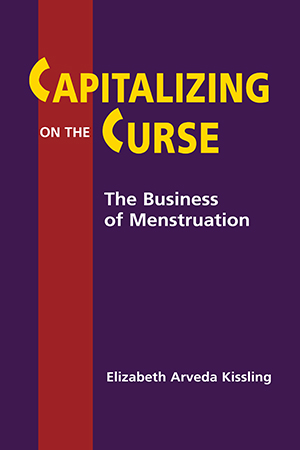Although a regular occurrence for millions of women, menstruation is typically represented in US culture as an illness or a shameful episode—to the benefit of an entire industry. Elizabeth Kissling reveals how corporations capitalize on long-standing negative attitudes about menses to sell solutions for nonexistent problems.
The commercialization of menstruation, Kissling acknowledges, has in many ways been positive: women embrace readily available, reasonably priced, and easy-to-use products with good reason. But it has also been one of the worst things to happen to women. Documenting how industry advertising portrays women as "the weaker sex," Kissling explores the profound gender bias inherent in—and reinforced by—the business of menstruation.
Elizabeth Arveda Kissling is professor of communication and women's studies at Eastern Washington University. She has written widely on menarche and menstruation.
"A well-researched, focused and thoughtful analysis of the commodification of feminine physiology and its negative impact."—Julie-Marie Strange, Journal of Gender Studies
"[This] wide-ranging work is a good introduction to the collision between women and the medicalized, capitalist world.... Kissling provides a needed overview of the pitfalls of cultural representations of menstruation in the United States.... Sure to make readers spend their next few weeks quite conscious of when and how they hear menstruation discussed."—Phoebe Connelly, Women's Review of Books
"This often-entertaining and always thought-provoking ... book will be of use to scholars in a wide variety of fields, and it is very accessible to students as well. Highly recommended. All levels / libraries."—Choice
"An important work.... Kissling has done a great service in alerting her readers to the implications of the rapidly growing business of menstruation." —Society for Menstrual Cycle Research
"[Kissling] shows that the corporate message that womens menstrual cycle limits them is simply wrong, negative, and reinforcing of images of women as weak."—Library Journal








